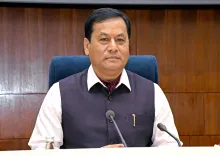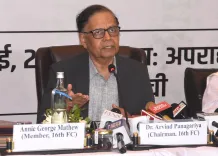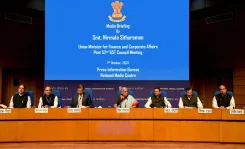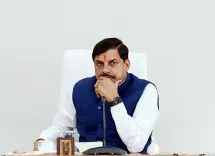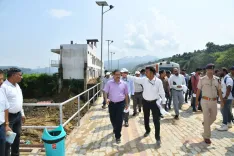Are Alternate Data Sources and Frontier Technologies Vital for Policy Making?
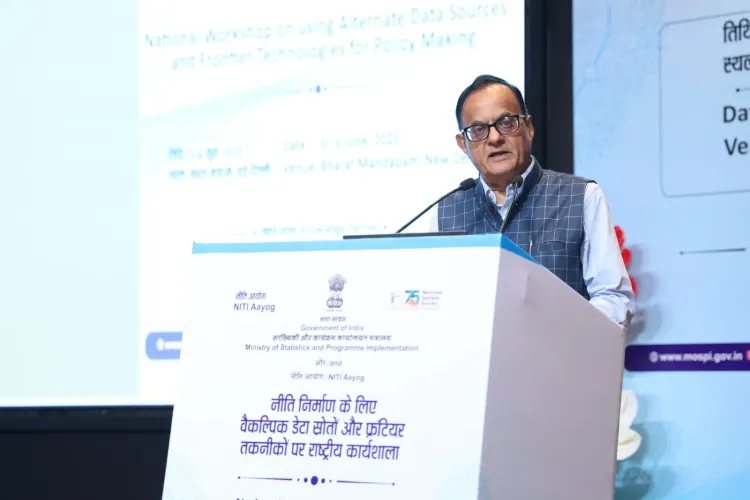
Synopsis
Discover how alternate data sources and frontier technologies are reshaping policy making in India. Professor Ajay Kumar Sood highlights the necessity of integrating traditional and alternative data for effective governance. This insightful discussion reveals the future of data-driven policies.
Key Takeaways
- Integration of traditional and alternative data sources is essential for effective policy making.
- Frontier technologies enable real-time insights, enhancing policy responsiveness.
- Collaboration among various stakeholders is key to successful implementation.
- Ethical deployment of AI is necessary to address data security and privacy concerns.
- India's techno-legal framework for DPI is a global contribution.
New Delhi, June 7 (NationPress) Alternate data sources and frontier technologies are becoming essential in the realm of policy making, as stated by Professor Ajay Kumar Sood, the Principal Scientific Advisor to the government. He emphasized the importance of creating optimal policies that integrate both traditional and alternative data sources.
These high-frequency indicators are more dynamic and provide timely insights, making policies more agile and responsive, he indicated during an event organized by the Ministry of Statistics and Programme Implementation (MoSPI), in partnership with NITI Aayog and the World Bank.
“While traditional data sources show us our past, alternate data sources reveal our future directions,” Professor Sood noted. He explained that although alternate data sources deliver real-time information with greater granularity, they cannot supplant traditional data sources.
The event saw participation from over 450 individuals representing central ministries, state governments, international organizations including the World Bank, academic institutions, and private sector entities.
Professor Sood also showcased various instances where alternate data sources have been successfully utilized. He highlighted the necessity for collaboration among government, academia, researchers, industry, and international organizations to effectively leverage new technologies.
He further advocated for the ethical use of AI, stressing that data security and privacy concerns must not be overlooked. He asserted that the establishment of a techno-legal framework for Digital Public Infrastructure (DPI) represents a significant contribution from India to the global landscape.
Professor Abhay Karandikar, Secretary of the Department of Science and Technology, described the policy-making process as intricate, involving data collection, stakeholder consultations, and insight generation.
“AI/ML advancements have enabled timely data processing for actionable policy design. In today's world, the challenge is not merely data collection but interpreting that data. The true challenge lies in addressing data privacy, security, regulatory frameworks, and institutional readiness,” he remarked.
Dr. Saurabh Garg, Secretary of MoSPI, underscored the importance of fostering collaboration among various stakeholders to build a robust statistical system that meets the data requirements for policy making.
He anticipates that within the next 3-6 months, MoSPI will implement some identified use cases to leverage alternate data sources and the application of frontier technologies.

